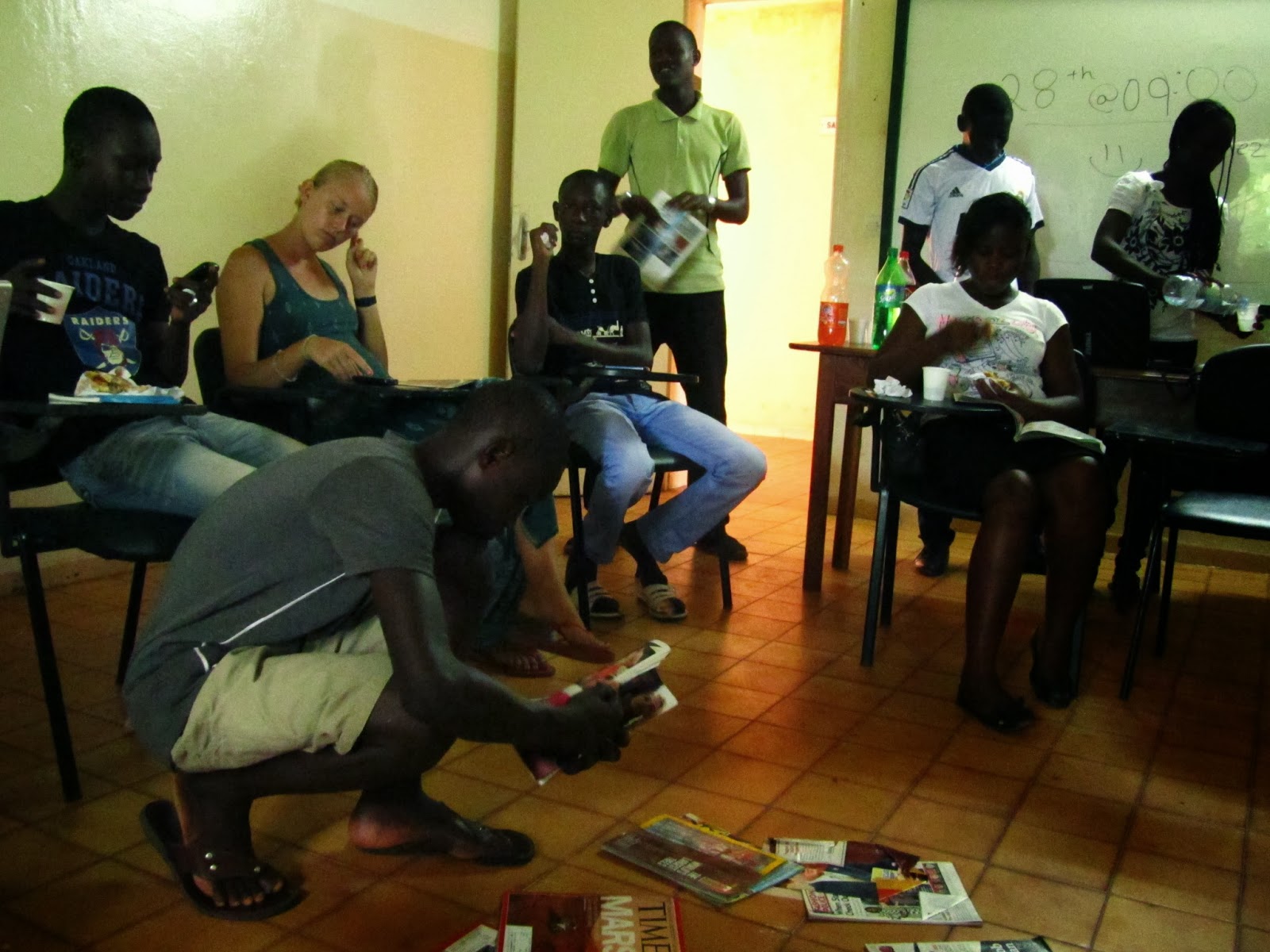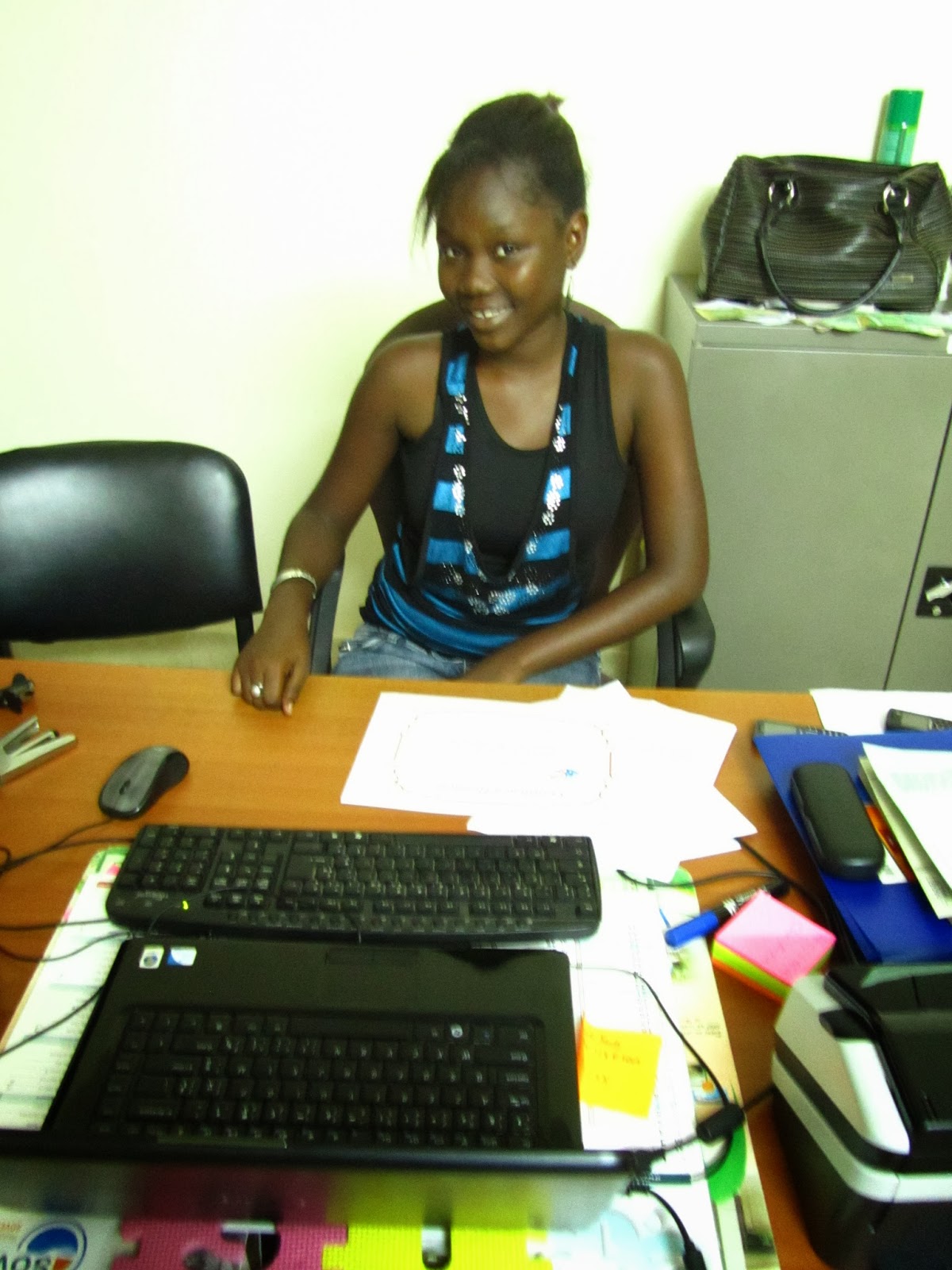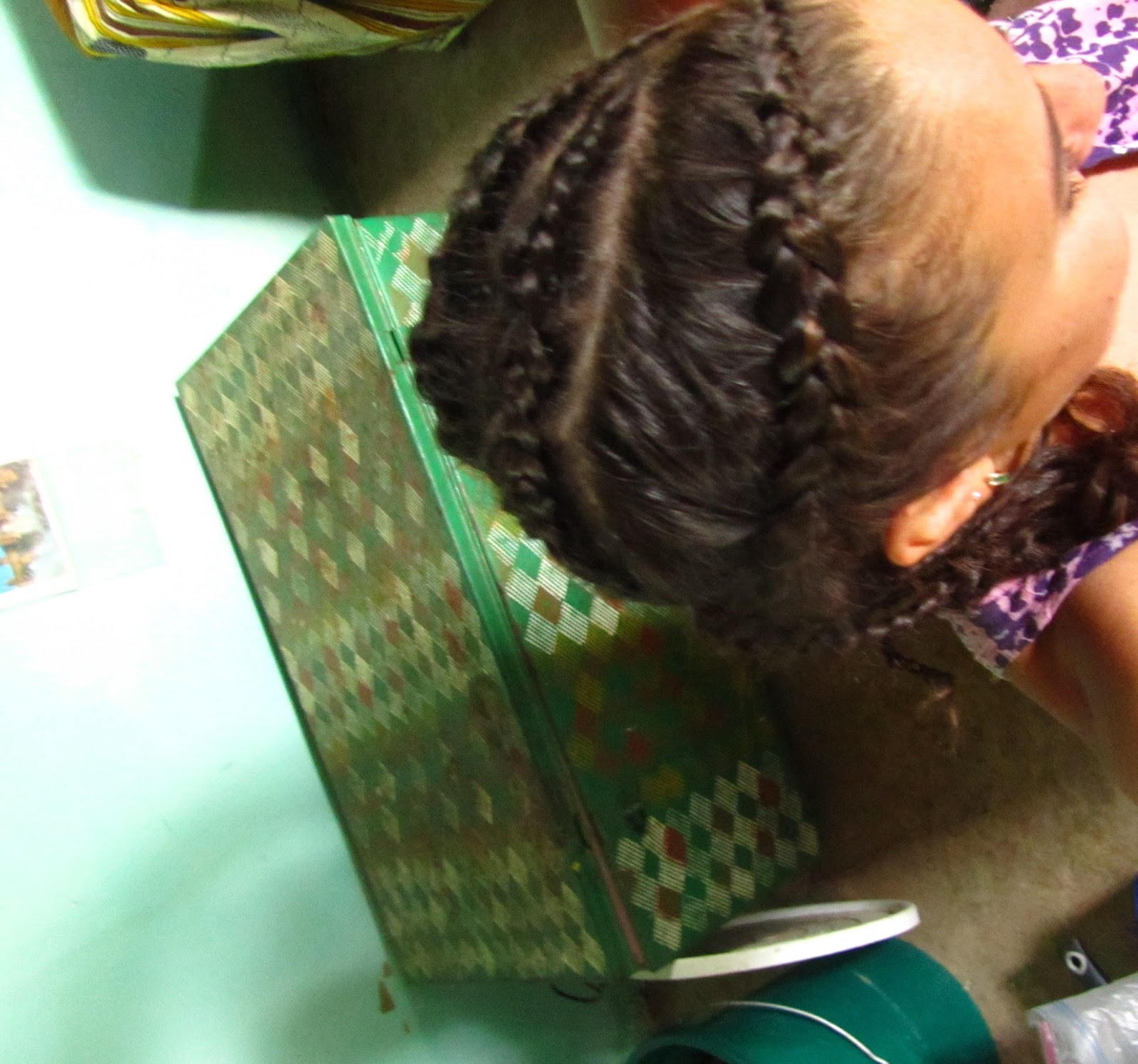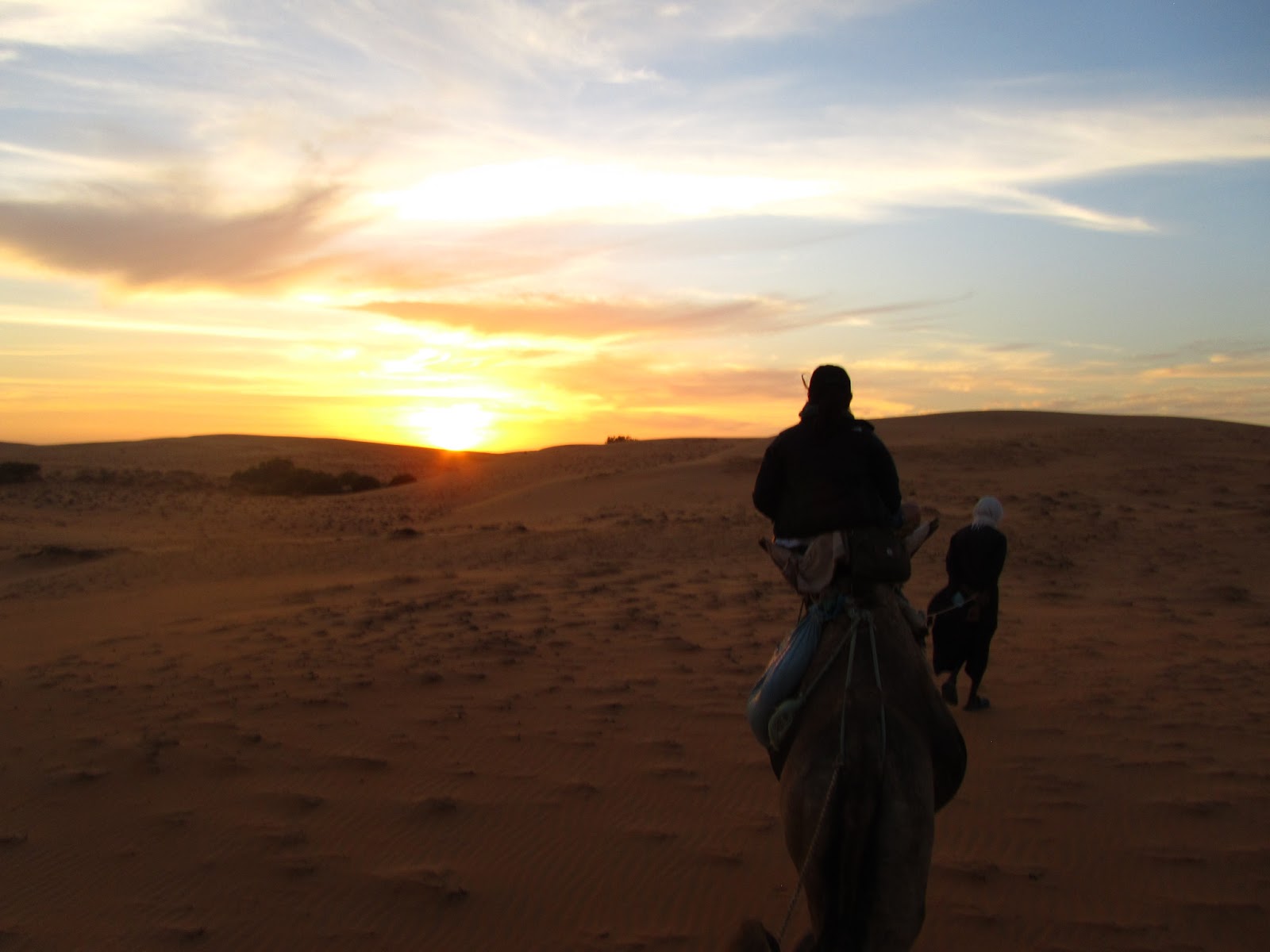 I recently went to visit a friend in the North of Senegal
and discovered that in reality I know very little about
I recently went to visit a friend in the North of Senegal
and discovered that in reality I know very little about
I knew I was out of my element on the 350 kilometer drive up
when I could not communicate in Jahanke with one person. After a nap, I woke up
to the landscape of a different country. At first I thought that the window was
dirty but soon realized that this just means I made it to the Sahara .
All of the corn stalks looked like a dull shade of green and the ground was a different shade of brown. Unlike my area with rich soil, everything was sand. My beautiful trees were replaced with
torn ridden bushes and invasive Mauritanian plants. Huts that are ubiquitous in
my area are turned into cement rooms with tin roofs or large mud built
structures.
One of the biggest surprises for me was that the there are
barely any crops. Coming from a village where everyone above the age of 18 has
at least one field, I was shocked. Therefore, instead of spending all of their
time planting, farming and preparing peanuts, people in the North have a lot
more time on their hands. Their main time occupant is taking care of cows and
praying. My village has cows but we leave them in the fields meaning I could go
months without seeing one. The north is filled with people of the Pulaar ethnic
group who are traditionally known as herders. And let me tell you, they love
their cows.
In my friend Alecia’s compound, there are 30 grown cows and
10 babies. Every day a man is paid to take the cows out to the ‘bush’. Additionally,
they herd goats and sheep which seemed silly to me until I realized that this
is the only way for them to find water and food. I got the chance to milk a
cow, drink fresh milk, and a fancy sour milk drink. Minus the milking a cow
part I was very glad to not be part of this cow culture. Most of my meals
contain peanut basis while Alecia’s contain milk. We grow our own corn while
they buy imported corn from Canada .
Her dad goes to the Western Union in her 'village' to get money every month from his sons who live in France , Spain
and America. My family works for 5 months to grown peanuts and than spends 7 months cracking and selling them.
Another contrast is religion. In my area Jahankes are known for being very religious and the Pulaars are less strict. Often they dont fast during Ramadan and do not pray 5 times a day. All of Alecia's family fasted during Ramadan, they killed 3 sheep for Tabaski, and they plan out their days around the 5 times of prayer. My family is somewhere in between. We fast during Ramadan and pray a lot then but are less strict about praying 5 times a day. Mostly, I deduced that it is because we are busier. Our average day consists of more things to do. We pull water, instead of just turning on a spigot. We pound our corn instead of bringing it to be ground buy a machine.
 |
| The first mosque in Alecia's village right next to her hut. Another one is being built. |
Overall it was interesting to see an new part of Senegal that I did not realize exists. This is a tiny country (the size of Oregon) but because transport is so slow it feels much bigger. Now that the count down for my time here has begun I need to see these other corners of Senegal!












































